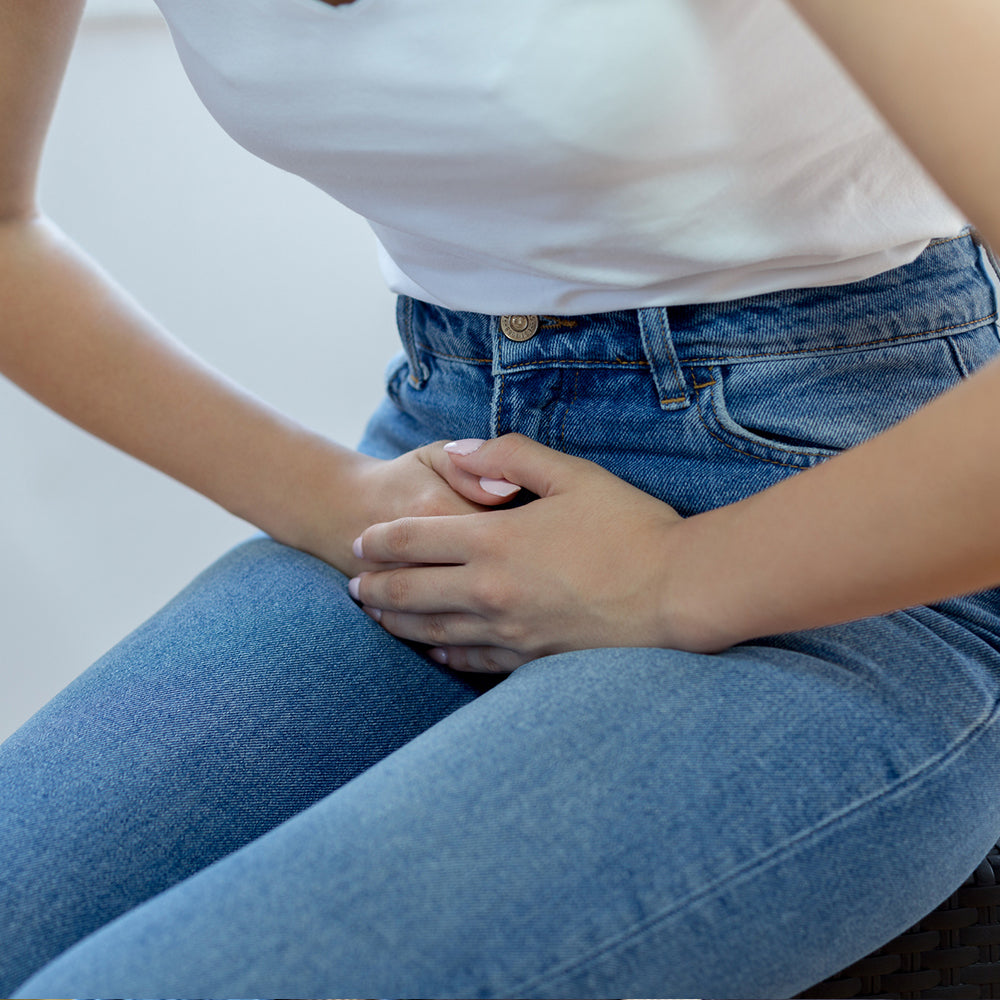
Frequent Urination: What is it, Causes & How to Treat?
Share
Frequent Urination, or Overactive Bladder (OAB) is essentially having the urge to pass urine more often than usual. If the bladder is functioning normally, you’ll likely be passing urine between 6-7 times per day, any more than that and you may be experiencing frequent urination. Urinating in excess of 7 times per day can be defined as urinary frequency1.
Frequent urination can become quite disruptive to your daily routine, including sleep, so while frequent urination is not considered a problem, it can be if your quality of life is affected. When sleep is disrupted by the constant need to get up for the loo, this is referred to as ‘nocturia’.
Is frequent urination, overactive bladder and urge incontinence the same?
Frequent urination, overactive bladder and urge incontinence are all very similar in the sense that they are all identified by a constant urge to urinate. Urge incontinence typically results in an involuntary loss of bladder control in addition to the constant urge to urinate.
What causes frequent urination?
Lifestyle changes such as increasing your fluid intake, especially caffeinated beverages and alcohol, can result in frequent urination. Pregnancy can also place additional pressure on the bladder resulting in need to wee more often.
Psychological factors such as stress and anxiety can also lead to urinary frequency, as can more physical health conditions such as urinary tract infections, inflammation of the bladder and more serious conditions such as cancer. If you feel like your urge to urinate has increased dramatically and it’s impacting your well-being, you should consult a GP to rule out larger health concerns.
Frequent Urination at night
When sleep is disrupted by the constant need to get up for the loo, this is can be referred to as ‘nocturia’. Frequent urination at night tends to become more common as you become older, and can occur in both women and men. In most cases, you should be able to sleep for up to 8 hours without the need to get up for the loo. People experiencing urinary frequency at night or ‘nocturia’, will be getting up more than once in the night which can disrupt the sleep cycle. Similar to frequent urination, nocturia can be caused by increased fluid intake before bed, bladder overactivity or more serious conditions. Check with your GP if you have any concerns.
How to stop frequent urination?
The most obvious way to ease frequent urination symptoms is to cut but on fluid intake, particularly diuretics such as caffeine and alcohol, particularly before bed time. Finding a balance between getting enough fluids and not having too much is a fine balance, so if you’re unsure, focus on cutting back on caffeine and alcohol. Carbonated fluids, citrus, and spicy foods can also irritate the bladder and exacerbate symptoms.
Medication can also be subscribed to alleviate frequent urination symptoms. These essentially relax the bladder muscle and calm down the spasms that often occur in the bladder which triggers off the need to urinate.
Pelvic floor exercises can help keep you in control of leaks when your bladder is overactive. You can do these yourself, although they can be tricky to get right. Our invisible workouts can guide you through the process.
The alternative is INNOVO, which strengthens your pelvic floor muscles for you. INNOVO is a clinically proven, truly non-invasive and long-lasting solution to urinary incontinence. Easy to use and comfortable to wear, INNOVO helps you safely and effortlessly strengthen and re-educate the entire network of pelvic floor muscles through gentle muscle stimulation.
Using INNOVO for just 30 minutes a day/five days a week over 12 weeks has been proven to treat bladder weakness – delivering results in as little as four weeks2.
INNOVO treats Stress, Urge & Mixed Incontinence in both women and men of all ages, and is the only non-invasive pelvic floor exerciser that targets the root cause of the problem. INNOVO's Urge Incontinence treatment programme can help with frequent urination as the stimulations are designed to calm down the muscle spasms that occur and which trigger your constant need to use the loo.
Best of all, INNOVO actually works. A clinical study found that:
- 80% of users saw a significant reduction in leaks after just 4 weeks2
- 87% of users were defined as either dry or almost dry after 12 weeks3
- 90% of users would recommend the therapy to others4
